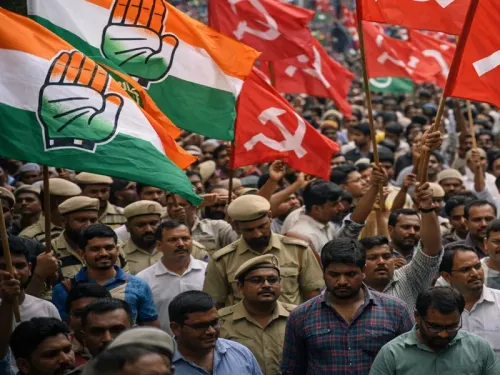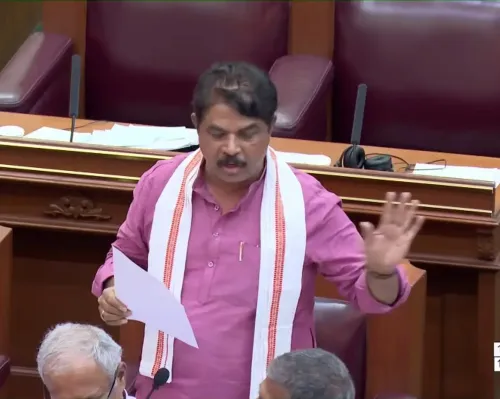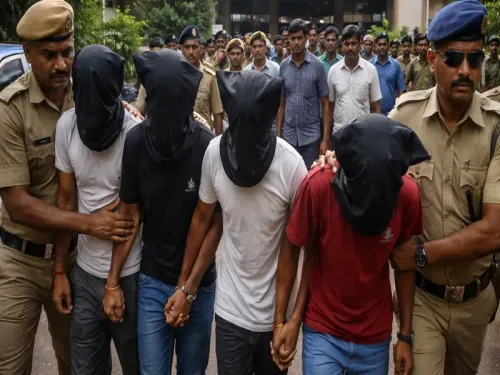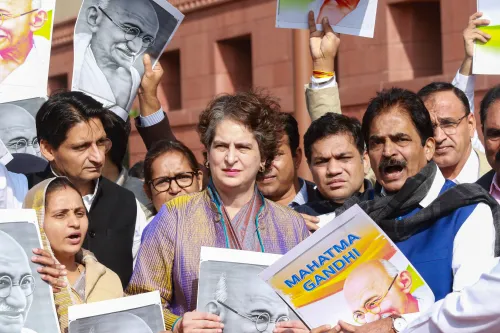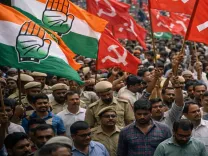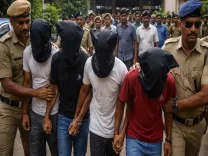Karnataka's Controversial Shrine: Congress Government Seeks Resolution
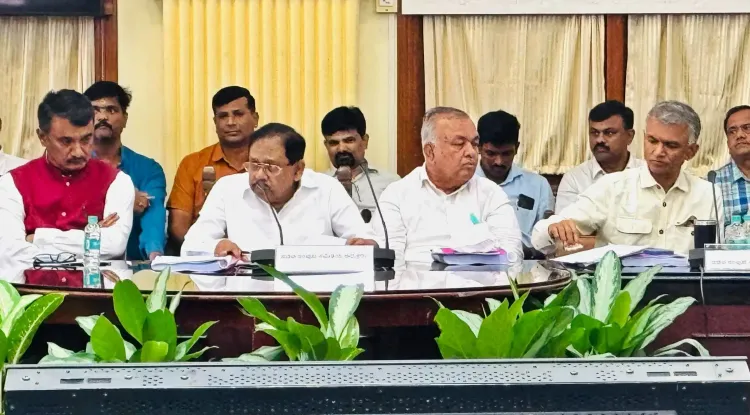
Synopsis
Key Takeaways
- Karnataka government seeks permanent resolution for the Dargah dispute.
- Meeting held with community leaders and legislators.
- Supreme Court has set a deadline for government input.
- Dispute has historical significance, impacting both Hindu and Muslim communities.
- The site is often compared to Ayodhya in context.
Bengaluru, Jan 17 (NationPress) In a significant turn of events, the Congress-led Karnataka government announced its commitment to resolving the contentious Datta Peetha Bababudangiri Dargah dispute once and for all.
A consultative meeting took place at the Vidhana Soudha conference hall in Bengaluru, led by state Home Minister G. Parameshwara. The meeting brought together legislators, representatives, and religious leaders from Chikkamagaluru district to deliberate on the ongoing Special Leave Petition (SLP) regarding this matter, which is currently before the Supreme Court.
During the session, insights and recommendations were solicited from the attendees, including representatives, religious figures, and leaders from various organizations of Chikkamagaluru.
Minister Parameshwara emphasized the necessity for a permanent resolution, with appropriate documentation of all pertinent records. The government plans to tackle this issue swiftly to preserve peace and harmony in Karnataka.
Addressing the media post-meeting, the Home Minister remarked, “The Datta Peetha Bababudangiri Dargah, situated on Chandra Drona Hill in Karnataka, has historically represented religious unity. While peaceful religious gatherings were commonplace until 1975, the following years have been marred by disputes and controversies.”
“The government has made numerous attempts to mediate this issue. Both Hindu and Muslim communities have pursued legal action. Committees and cabinet sub-committees were established to review records and present them in court. Recently, some individuals escalated the matter to the Supreme Court,” he elaborated.
“Our administration is resolute in permanently resolving the Datta Peetha Bababudangiri Dargah dispute. The cabinet sub-committee, led by Chief Minister Siddaramaiah, has convened four times and examined a multitude of documents. On January 7, the Supreme Court instructed the government to provide its opinion by March 24.
“In this context, we consulted with representatives and religious leaders from Chikkamagaluru to gather their feedback and insights. The cabinet sub-committee will reconvene next week to assess the gathered inputs and documentation. We are committed to submitting the necessary information to the court, and future actions will depend on the court’s ruling,” he added.
The meeting was attended by Transport and Muzrai Minister Ramalinga Reddy, Energy Minister K.J. George, Revenue Minister Krishna Byre Gowda, Housing and Waqf Minister Zameer Ahmed Khan, MP Kota Srinivas Poojari, MLAs H.D. Thammaiah, Nayana Motamma, MLC C.T. Ravi, religious leaders, and officials from Chikkamagaluru district.
The disputed site is often likened to Karnataka's 'Ayodhya'. While the shrine has historically been a symbol of harmony between Hindus and Muslims, it has turned into a focal point of conflict and contention for over thirty years.
Datta Peetha, located in Chikkamagaluru, has served as a pilgrimage destination for both Hindus and Muslims. The BJP is currently advocating for the site to be officially recognized as a Hindu temple.
Prior to 1964, the shrine was held in esteem by both communities, symbolizing Sufi culture and the unity of Hindu and Islamic traditions. Originally known as Shree Guru Dattatreya Bababudan Swamy Dargah, what was once a shared pilgrimage site has become a contested location.
Hindus regard the hill as the final resting place of Dattatreya, while Muslims believe the dargah is among the earliest Sufi centers in southern India, associated with Sufi saint Dada Hayat Mirkalandar, who is said to have lived there for many years.
Regardless of the ongoing controversy, local coffee planters continue to visit the shrine to offer their respects before the harvest season. Fakir Bababudan, a 17th-century Sufi saint from Yemen who settled at the shrine, is credited with introducing the first coffee seeds to the Indian subcontinent.


